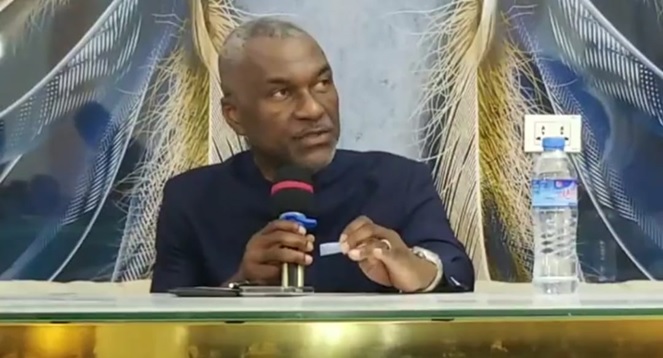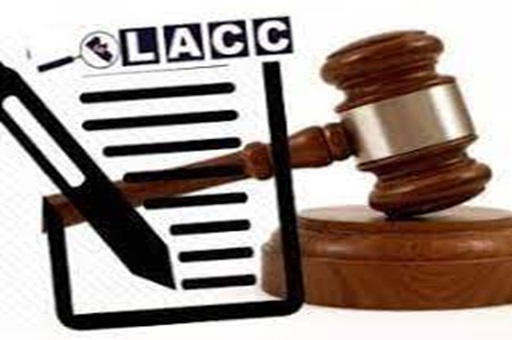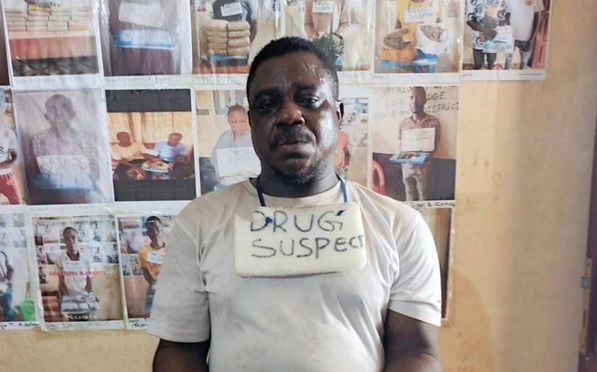MONROVIA, LIBERIA – Mr. Alexander B. Cummings, leader of the Alternative National Congress (ANC), has ruled out any future bids for the presidency, insisting that his desire to run again is not driven by desperation but by the need for substantial change in Liberia’s governance. Cummings acknowledged the failure of his past campaign messages to connect with voters but reiterated his conviction that Liberia’s problems can only be addressed by radically changing the status quo.
Speaking at a media engagement at the Ma Cece Event Hall in New Georgia, Monrovia, on Wednesday, February 12, 2025, Monrovia, Cummings candidly admitted that his messages in the 2017 and 2023 elections did not resonate with a large portion of the electorate. Despite this, he remained steadfast in his belief that Liberia needs fresh leadership and a shift away from the political class that has led the country into persistent stagnation. “You can’t keep doing the same things and expect different results,” Cummings said. “Liberia has been stuck in a cycle, and it’s high time that we stop clinging to failed policies and leaders.”
He sharply criticized the entrenched political elite, asserting that the country’s political machinery has long been designed to serve the interests of a select few, leaving ordinary Liberians struggling with poor governance, corruption, and inadequate services. Cummings was clear in his assertion that he will no longer perpetuate the political circus, as he emphasized the need to think strategically and work toward real reform.
Although he made it clear that he has no interest in running for office again, Cummings underscored that he is not retreating from Liberia’s political sphere entirely. Instead, he intends to remain an active voice in pushing for reforms that are fundamental to Liberia’s survival and growth. His focus, however, will be less on politics as usual and more on offering constructive criticism and alternative perspectives on national issues.
Despite his criticisms of Liberia’s political establishment, Cummings also made it evident that he is not a politician given to petty attacks or gratuitous criticisms. “I’m not here to insult people or tear others down to make myself look good,” he said. “But I will not shy away from making my voice heard, especially on the issues that matter most to the future of our country.” He acknowledged that real progress in Liberia will require a broader approach and willingness to challenge the status quo.
On the issue of governance, Cummings didn’t hold back, stating that the ruling political elite’s refusal to address corruption and bring meaningful reform is damaging Liberia’s potential for progress. His call for reform has centered on the idea that Liberia’s resources should be directed toward the people, not a few elite individuals entrenched in corrupt systems. He echoed his long-held belief that the government must fight corruption, prosecute those responsible, and make systemic changes that prioritize the welfare of all Liberians, not just the political class.
Cummings emphasized that the average Liberian still suffers from inadequate healthcare, poor infrastructure, and the lack of access to economic opportunities. He lamented that the ruling government has failed to act on many of these issues, choosing instead to focus on political games and internal squabbles. “We are a country of promises but no delivery,” he said. “How many more years will we spend in this cycle of unfulfilled promises?”
In a particularly critical assessment of President Joseph Boakai’s administration, Cummings cited a series of mistakes made within the first year, which he deemed avoidable if the president had received better advice. He pointed to the controversial yellow machine deal, the suspension of tenured officials in violation of court orders, and the failed bus acquisition attempt as prime examples of the government’s mismanagement. “These mistakes are like own goals in a game of politics,” Cummings remarked, further questioning the ability of the Boakai administration to make critical decisions in the country’s best interests.
Despite these frustrations, Cummings acknowledged that it may be premature to judge the success of the Boakai administration, given that it has only been in office for one year. However, he warned that the early missteps should serve as an early warning of a government that seems unable to steer the country in the right direction.
Cummings also pointed out that while the government continues to make grandiose claims about improvements in healthcare and infrastructure, it is clear that progress has been slow, if not non-existent. “We need to ask ourselves whether hospitals are better stocked and whether healthcare services have improved,” he said. “The truth is, Liberia’s healthcare system is still inadequate and failing the people who need it most.”
As a former businessman, Cummings compared Liberia’s governance to the corporate world, stressing the need for leadership that is results-driven and goal-oriented. He criticized the government’s failure to improve the business environment for Liberians, arguing that foreigners still dominate many industries where local entrepreneurs should be thriving. He specifically mentioned the rice importation industry as a prime example of where Liberians could be empowered to take control of vital sectors.
On the rule of law, Cummings expressed concerns about the government’s selective application of justice, warning that this weakens the country’s fight against corruption and crime. He argued that no one, regardless of their position, should be exempt from the law. The failure to hold people accountable sends the message that corruption is permissible and will not be punished.
Cummings also stressed the importance of strengthening Liberia’s integrity institutions, especially as the country seeks to secure a seat on the United Nations Security Council. He insisted that Liberia must be seen as a country that practices good governance, both domestically and on the international stage. To do this, the government must demonstrate a commitment to fighting corruption and improving human rights practices.
Turning to the issue of agriculture, Cummings expressed frustration that the government has failed to prioritize this critical sector. He pointed out that agriculture remains one of Liberia’s greatest potential drivers of economic growth but that the government is not doing enough to support farmers. “The government must provide farmers with the right tools, fertilizers, and access to markets,” he said, stressing that Liberia’s farmers need more than just promises—they need concrete support.
Cummings also criticized the ongoing disparity in government salaries, highlighting the fact that legislators and a select group of government officials continue to receive inflated salaries while civil servants are left struggling. “How can we expect to build infrastructure, improve healthcare, and invest in education when millions of dollars are being funneled into the pockets of a few?” he asked.
Furthermore, Cummings defended his decision to bypass a career in the Senate and run for the presidency directly, saying that Liberia’s political system is fundamentally broken. “There’s nothing to learn from the failures of the past,” he remarked, signaling his disillusionment with the current state of Liberian politics.







